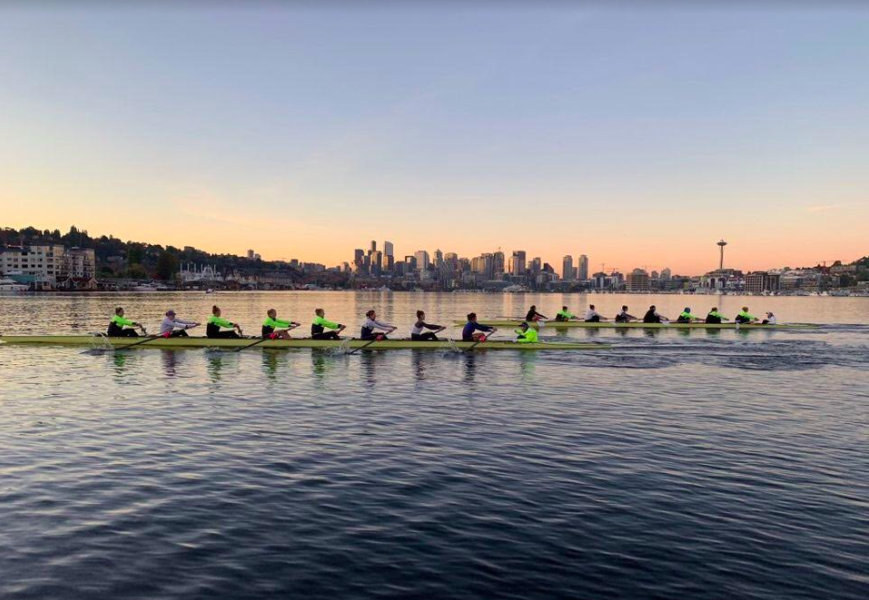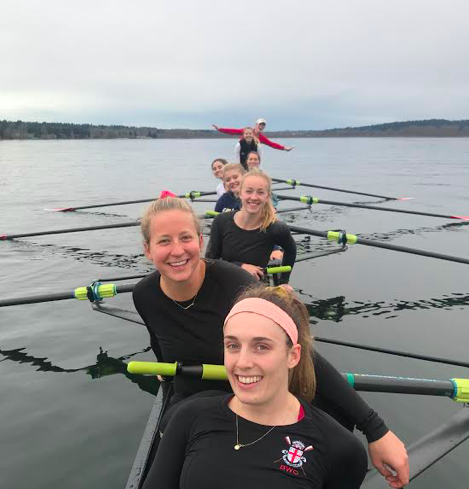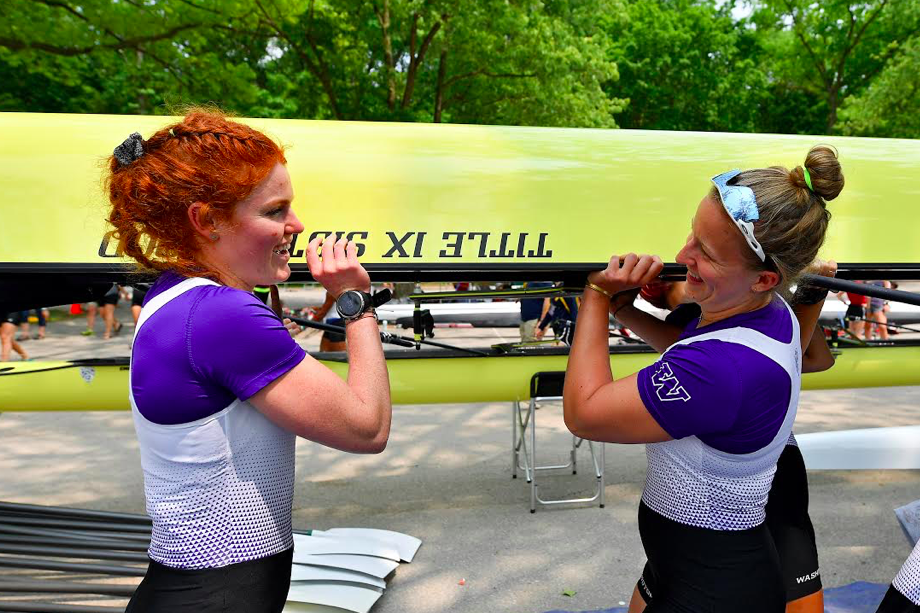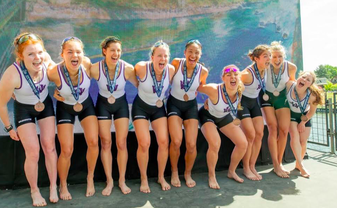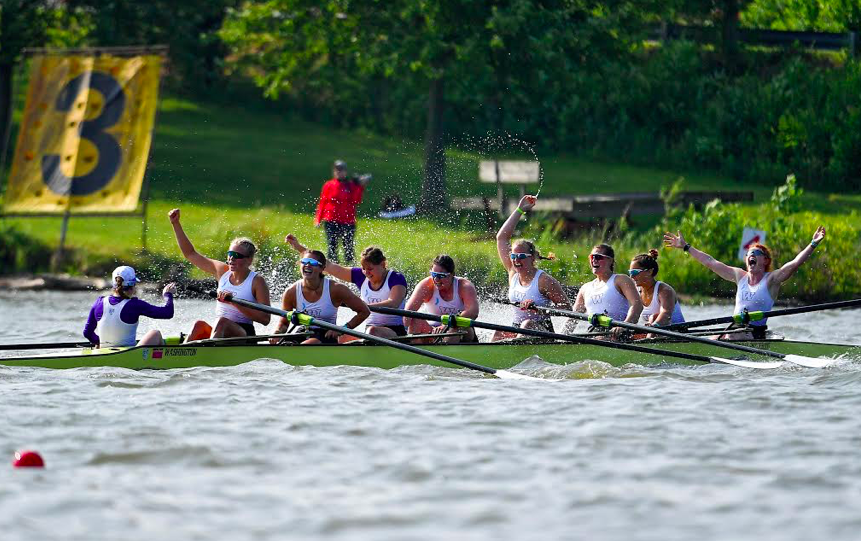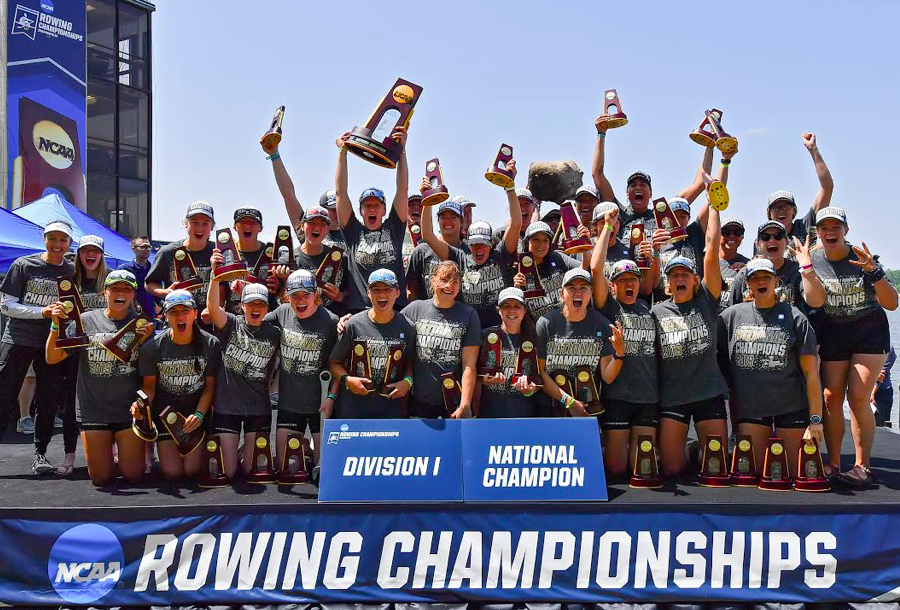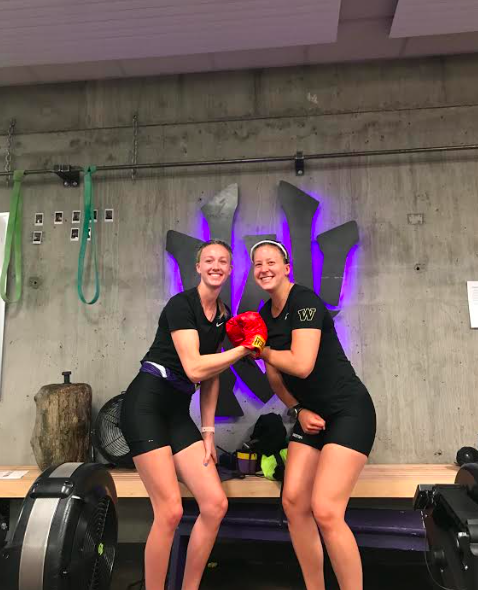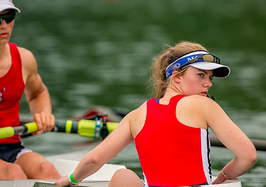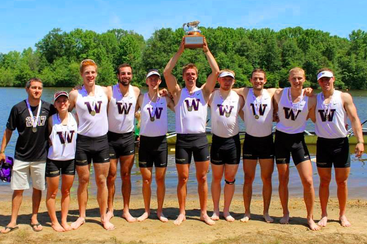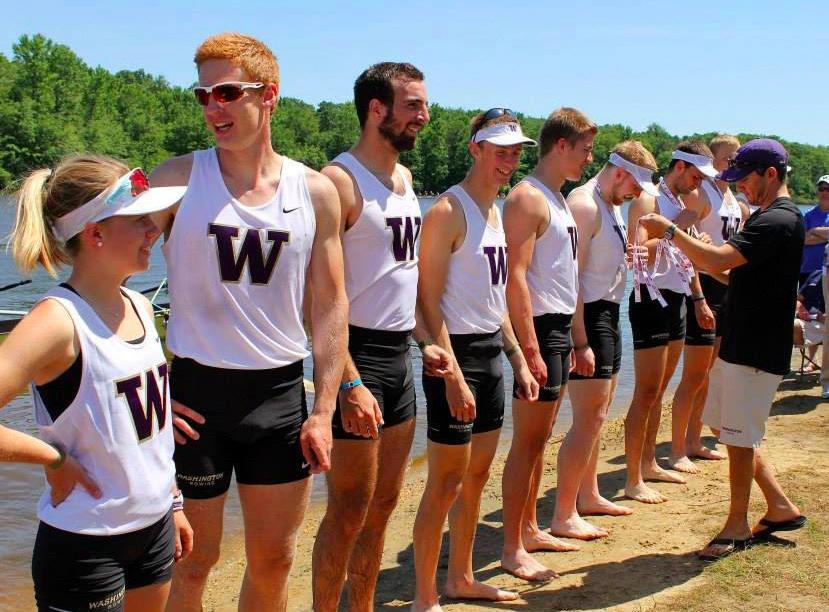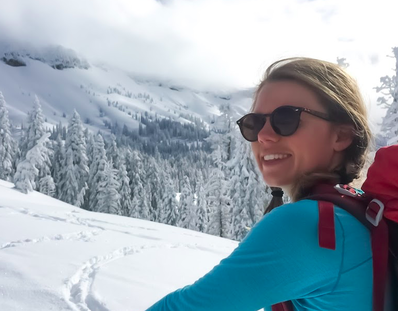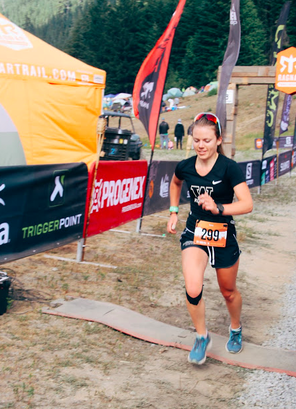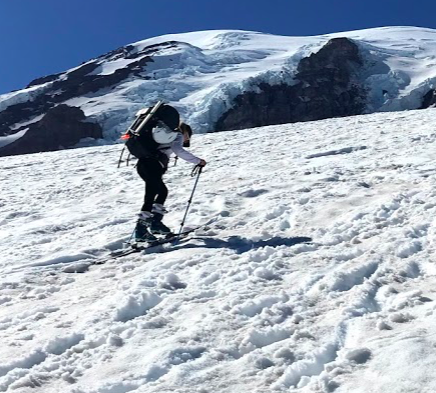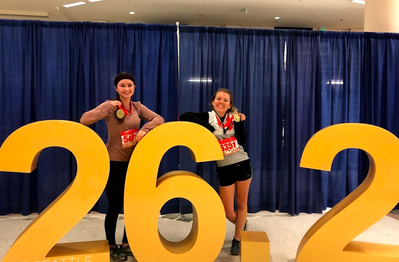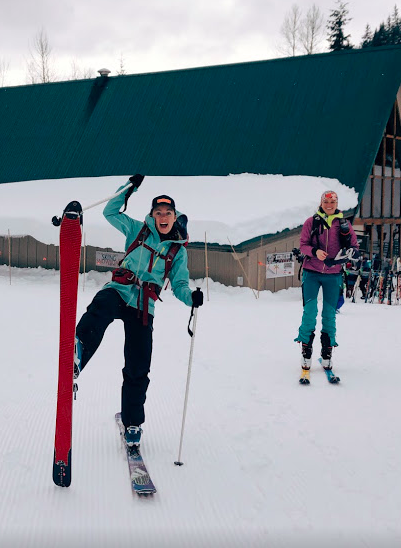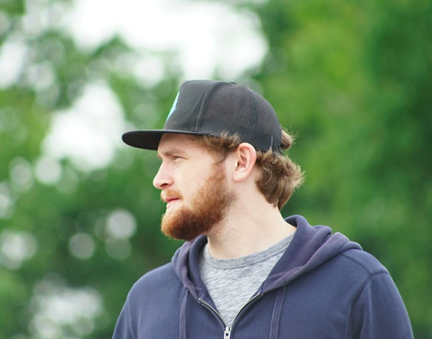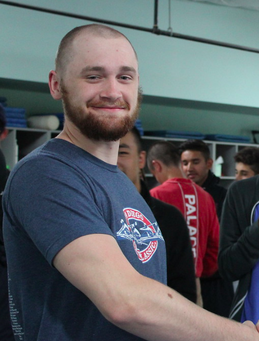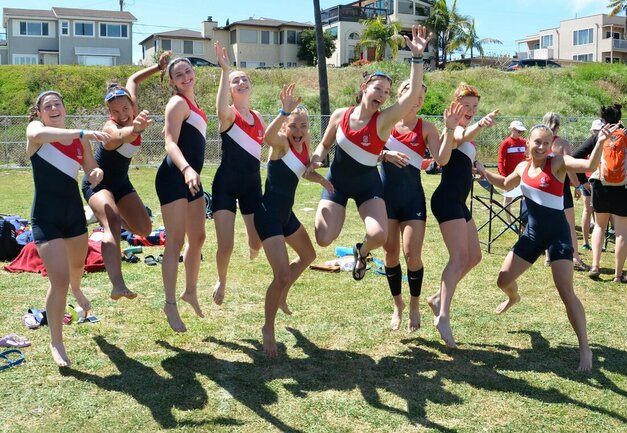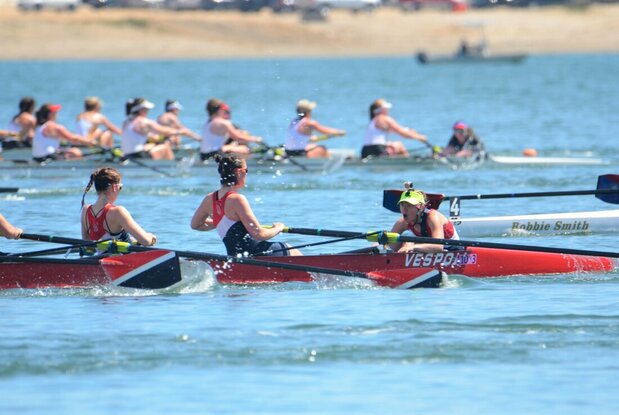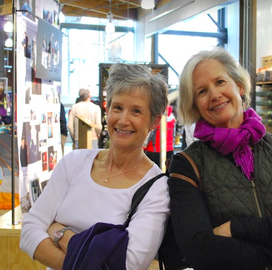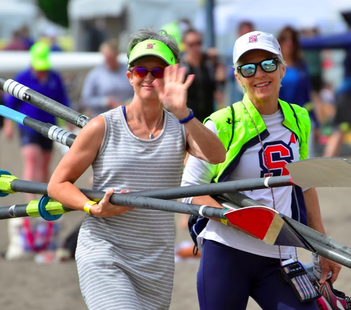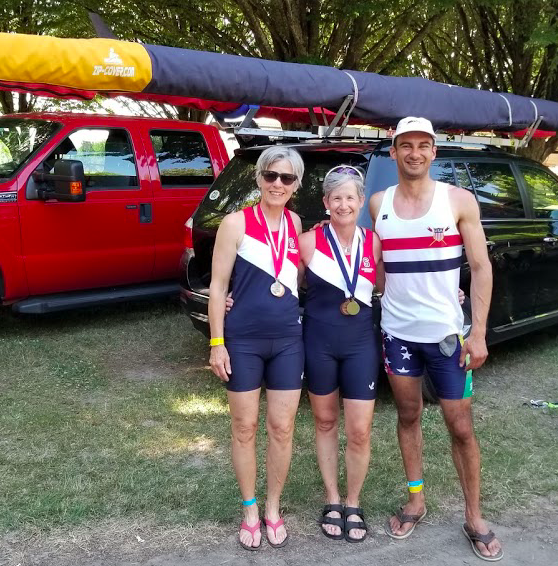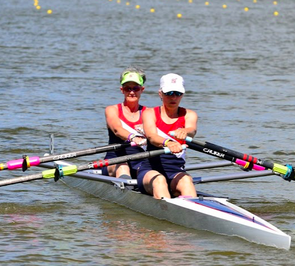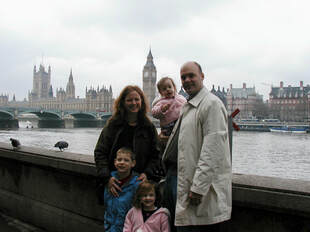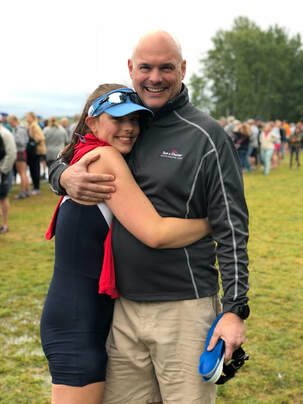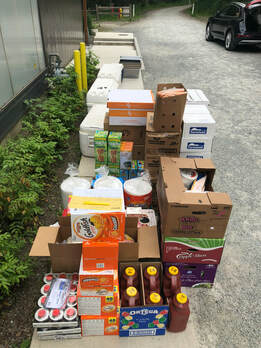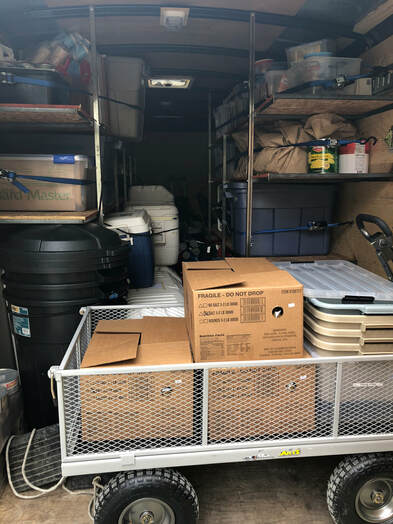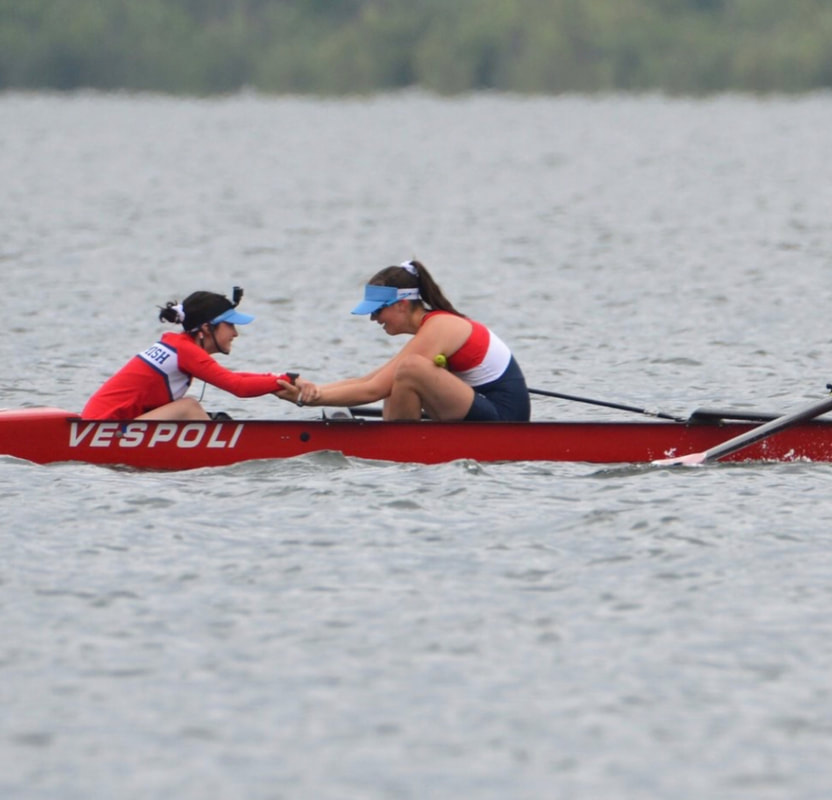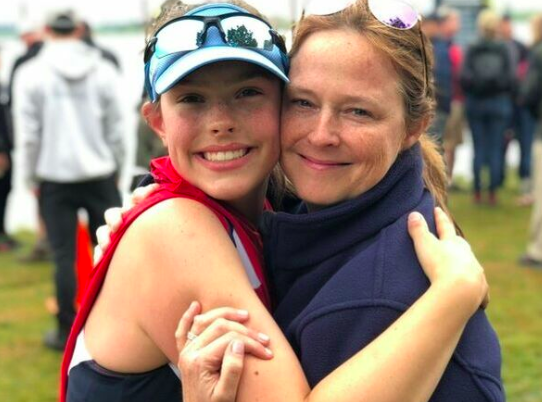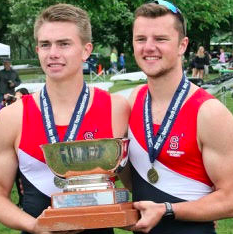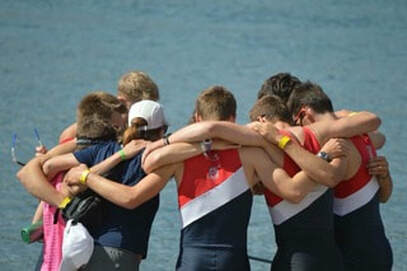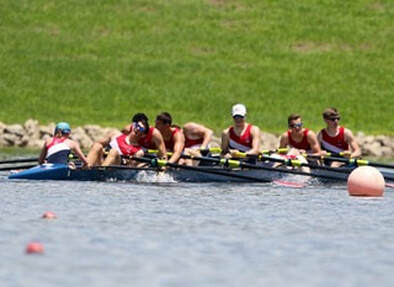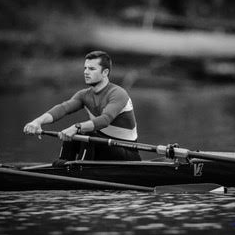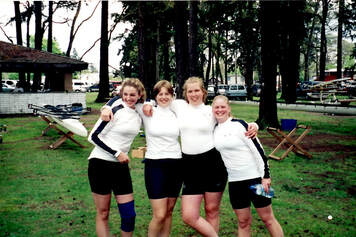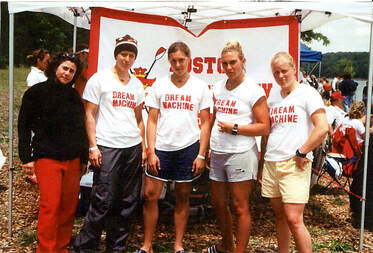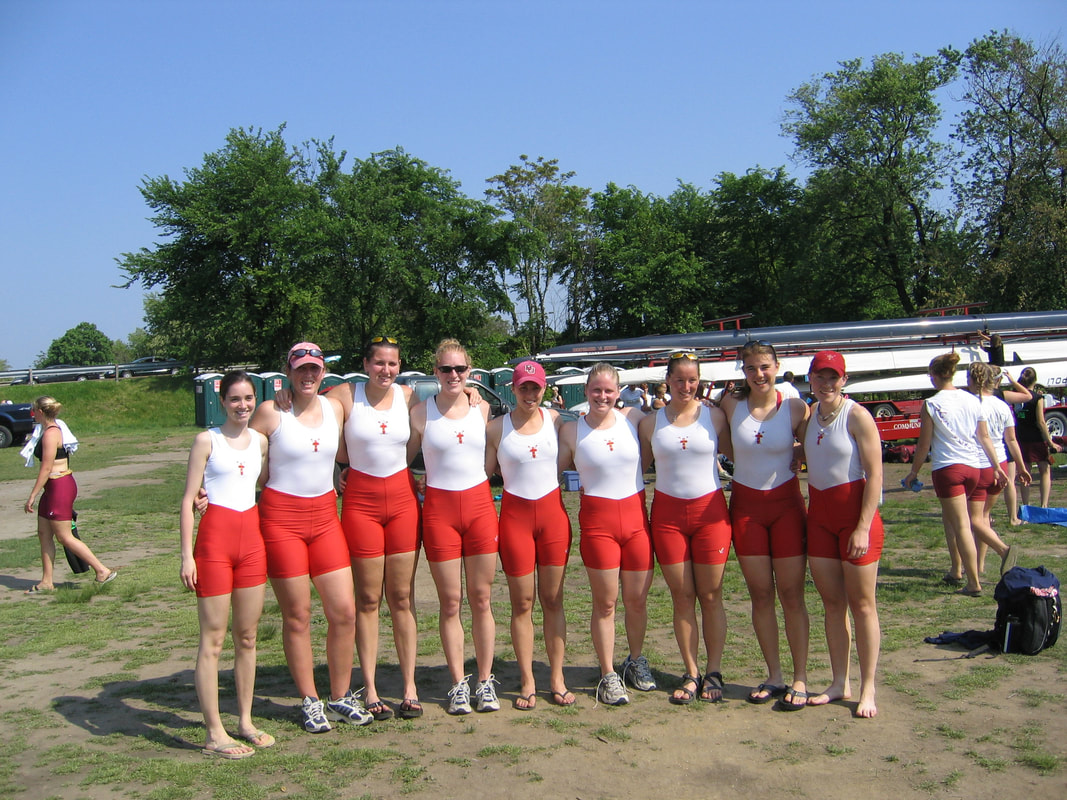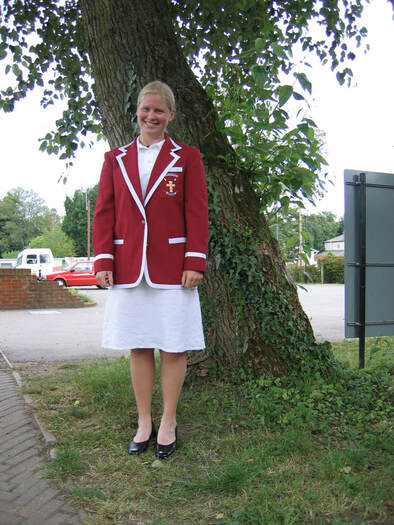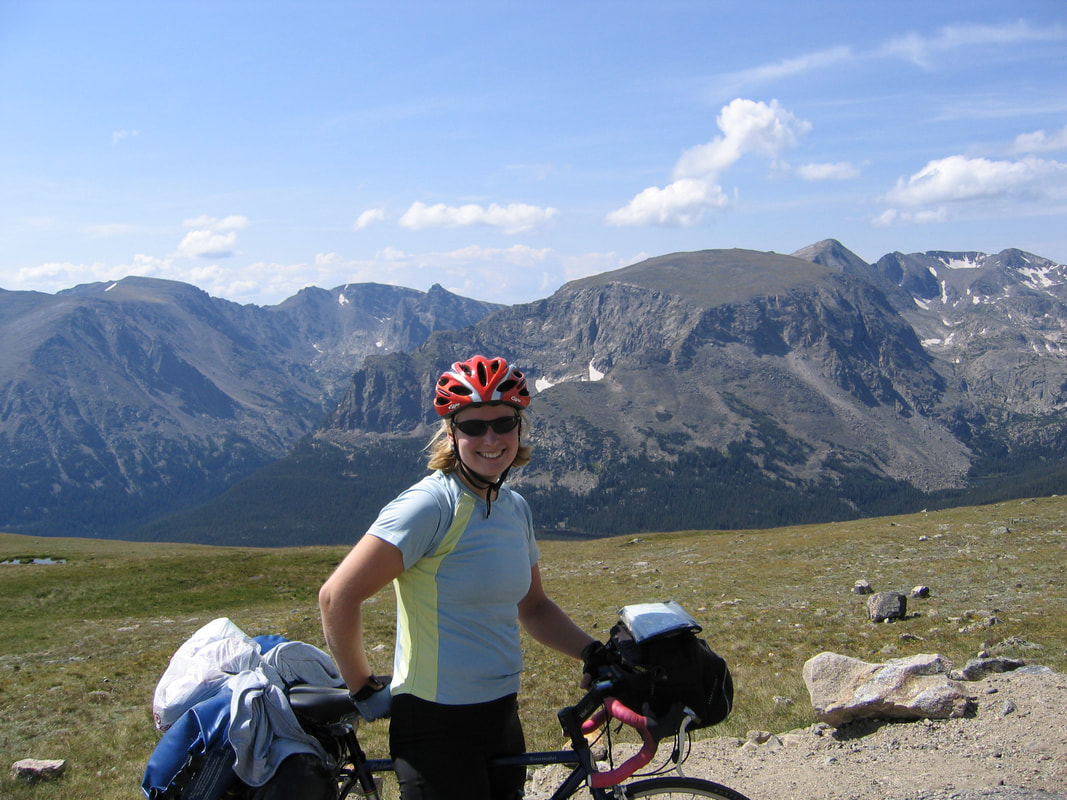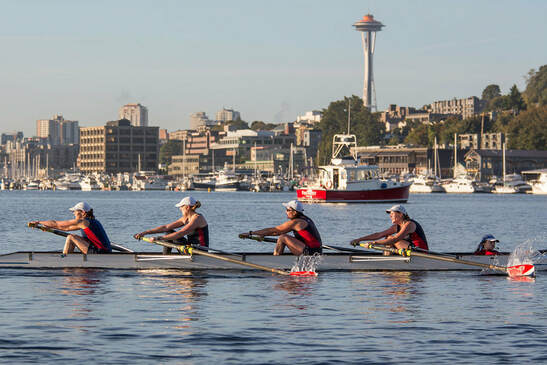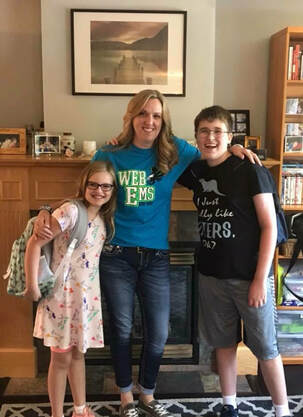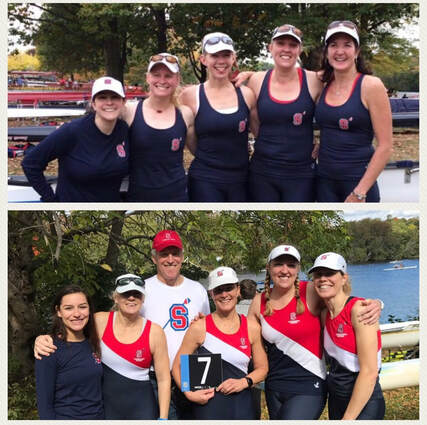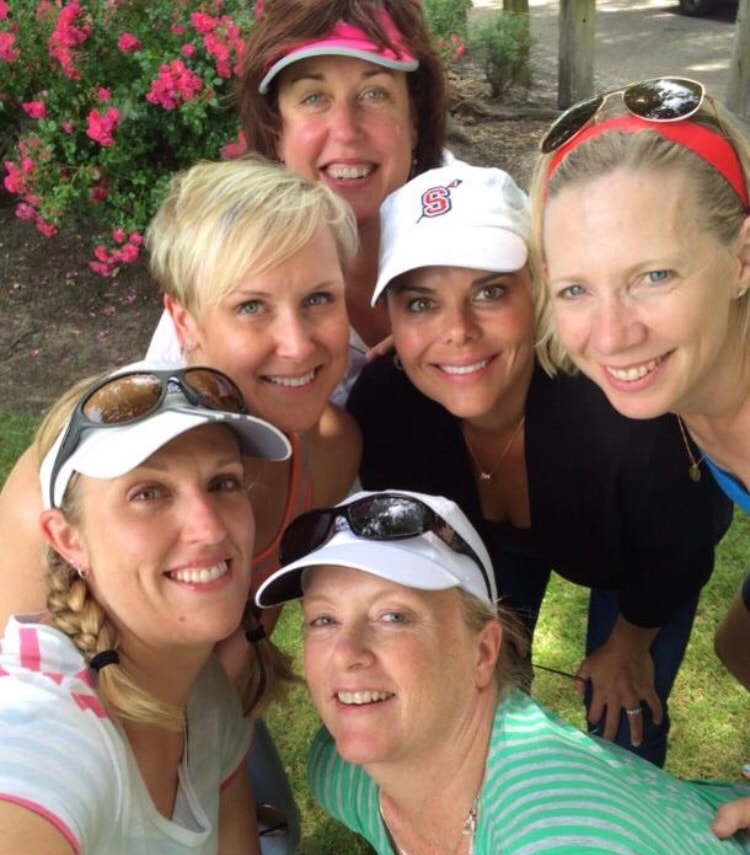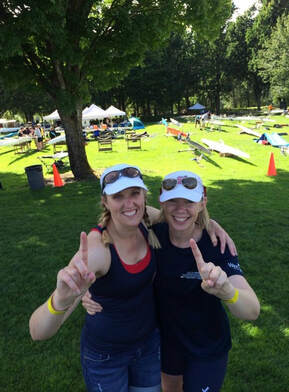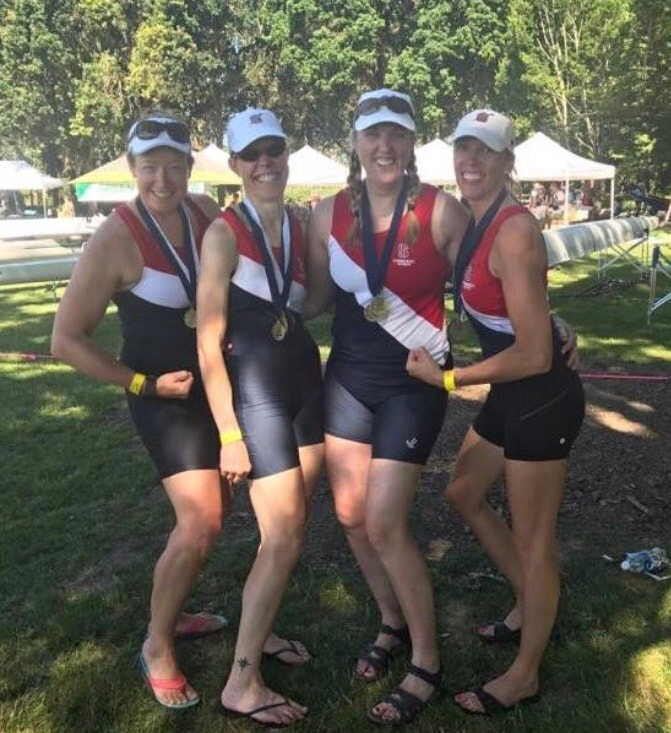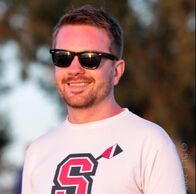 SRA Junior Program Director Eliza Dickson has announced Dennis Ferrer as Head Girls Coach. "The key traits I was looking for during the search were a commitment to developing young people, both in and out of rowing; a commitment to building a full-team culture based on hard work and respect; the ability to work with all coaches on staff in a selfless and positive manner; and a history of success at the regional and national level," said Dickson. "During this process I became more and more confident that the best person for this job was right here in our boathouse." "After working with Dennis over the past year one major thing stood out to me - the care, commitment and passion to give his athletes the best experience possible," Dickson continued. "That is the most important trait that I look for in any coach on our staff. Additionally, Dennis has a history of success coaching Sammamish boats to more than 13 Northwest Regional Championships and qualifying eight boats to USRowing Youth Nationals with four making the grand final – more than any other coach in SRA’s history. These are high achievements for an early coaching career." “I’m humbled and excited by the opportunity to lead this team,” Ferrer said. “I’ve been a part of Sammamish for a long time and am looking forward to continuing to build SRA into the program we all know it can be. There is an incredible group of young women on the team right now and I think we are primed to make some big steps forward.”
Following high school rowing, Gallaher decided to attend the University of Washington (UW). Even before she started rowing, she knew that she wanted to attend UW for academics. After her rowing career started to get serious, she started to consider rowing in college. She got into UW without any help from the rowing team and then began to talk to coaches, and was eventually recruited onto the team. It would turn out that Gallaher would go on to become an incredible collegiate rower. Her list of accomplishments include winning 3 PAC-12 championships, an NCAA championship, and being invited to the US U23 national team selection camp this summer.
Overall, rowing for the Huskies has been a dream come true for Gallaher. “It’s surreal looking back at the time that I didn’t think I was good enough to row for UW,” she said. “I looked up to the older girls on the team my freshman year, and looking where I am now it is honestly a little unbelievable. These past three years have had so many ups and downs, but at the end of the day I feel so lucky and blessed to be where I am. I absolutely love the team.”
Gallaher and other teammates, both men and women, spent time last year writing the grant proposal and ended up receiving one of the largest grant sums from the University’s Sustainability fund. The men’s and women’s rowing teams will each receive an electric motor, and Gallaher and her team are looking for more ways to bring sustainability to the rowing community. Another aspect of their project is outreach. “We had the opportunity to talk at a Sammamish Rowing Association board meeting about our project. Electric launches might not be feasible at the time for all rowing programs, but starting a conversation about environmental sustainability is a great first step. It’s been really cool to be a part of the conversation, and even cooler that SRA was also involved. UW and SRA are both leaders in the northwest rowing community and I’m proud to be associated with both programs,” Gallaher said. Fellow SRA junior rowing alumni, Tennyson Federspiel, helped Gallaher and her project partners present at the Sammamish boathouse. It is special to see our alumni embracing one of the core values of SRA, thoughtful stewardship, beyond their time at the Hod Fowler Boathouse. It just goes to show that we coach not just amazing rowers, but incredible leaders too. Rowing has provided so many opportunities for Gallaher- something she is very aware of. She hopes to give back to the sport she loves, and when asked if she had any advice to offer, she said: “I think if I had advice to give to younger athletes it would be to not set limits for yourself. I realize it’s easy for me to say now that I’m rowing at UW and coming off of a national championship, but there was a time not so long ago that I thought I wasn’t good enough or strong enough to row at UW.” “I am so thankful I had the experience of going through SRA- mainly being introduced to the sport and community at SRA. The support and coaching staff at SRA is so incredible. The community at SRA pushed me to take my rowing career as far as I could.” Gallaher finished with.
Congratulations on your incredible accomplishments, Molly! SRA is so proud of the leader and the person you are now, both in and out of the boat. We can’t wait to see what your senior year of college holds for you!
Roberds joined the women's team as a rower, and found herself struggling to keep up. She was consistently seated in the 4V or 5V boats, and found that rowing wasn’t her strongest area in crew. Standing at 5’1”, her coach encouraged her to try coxing in addition to rowing. After a couple years, she eventually moved onto the men’s team as a full time coxswain when the women’s team had a surplus of coxswains. After working for so long to start having success, Roberds was rewarded during her experience at the Head of the Charles Regatta in 2012.
Roberds graduated from the University of Washington in 2017 with a degree in Industrial and Systems Engineering, and now works for Convoy, which is a tech company in the trucking industry. However, she still makes time outside of work for coaching and coxing at Sammamish. “I do like hopping between coaching and coxing because I can add to the team in different ways,” she said. “I coached here in the summers in college and helped with almost every time slot and every age group.” Roberds enjoys passing on her love for the sport, and seeing her rowers experience new things and gain more skills. She added, “What I enjoy is having people overcome personal challenges, whether it’s a physical or mental challenge, and feel like they get one step stronger each time they come down to the boathouse.”
In all of her years rowing and beyond, Roberds has gained incredible experience. She advises new rowers to, “be comfortable with being a little uncomfortable and pushing yourself a little bit every day. Challenge yourself to be faster than you are, to step up into a leadership role, or to try something new. Learning something new is hard on it’s own. Create small goals one at a time and push yourself to accomplish them.”
Chris Ron started rowing in middle school while he was in the seventh grade. His parents had heard about the program from other parents and signed him up. Just a few years later he moved up to the high school team and was coached his novice year by Simon Williams. His 6 years at Sammamish Rowing Association (SRA) were transformative and full of great memories. When asked about his rowing experience Ron said, “Rowing made me tougher. I had a sense of pride that I did crew. My friends weren’t always tough enough to do it so being in the sport gave me pride.” This sense of pride is commonly felt in rowers. Rowing is a tough sport. This full body workout and activity requires strength from the mind and body as well as cardiovascular endurance. A rower has to be disciplined, motivated, and hard working to succeed and that is exactly what Ron was and still is. His favorite memory during his time as a rower was when his nationals petition for his pair with Sam Dernis went through and was approved. He and Dernis had missed the qualifying cut by 0.2 seconds at regionals, but petitioned for their chance to race at nationals in California and eventually their determination paid off.
His advice to new rowers is to look up to experienced rowers. He wants new rowers to look at experienced rowers and see how they can improve. He encourages novice rowers to reach out to the more experienced ones for advice and support. SRA has over 170 junior rowers all with their own unique experiences. We also have over 160 masters rowers to connect with. Combined with an incredibly dedicated, tenured, and knowledgeable staff- the opportunities to learn from others are endless at the Hod Fowler Boathouse.
Outside of the boathouse Ron is dedicated to his studies. He hopes to transfer to Seattle University and is currently a Computer Science major. Outside of his coaching and class work, Ron enjoys creating music. He plays the guitar and has created some solo music that he plans to release on itunes in the near future. His final advice was, “embrace the pain (in rowing). If anything is hard it’s probably a good thing.” The novice boys team and the whole entire SRA family have enjoyed having Chris back at the boathouse contributing to the sport he loves. From middle school rowing to high school coaching, Chris has been an incredible part of the SRA community. Be sure to compliment the hair cut the novice boys gave him following Junior Regionals! The San Diego Crew Classic (SDCC) has been around since 1973 and was created by individuals who sought to bring the nation’s top collegiate crews together for an incredible racing experience. One of the first attendees included the University of Washington. The university harbors an impressive and renowned collegiate team that Sammamish Rowing Association (SRA) has sent many of its high school alumni to.
Today, the San Diego Crew Classic has grown considerably since 1973. Over 4,000 athletes in over 100 races compete in this two day, nationally acclaimed regatta. Thousands of spectators flock to Mission Bay Park to enjoy watching races in person, but even more watch via live stream footage on the regatta website. Early this April, SRA sent four masters boats and six junior boats to the SDCC ensuring that our presence was noticed in the west. Every single SRA rower gave everything they had and enjoyed impressive race results. One of the well earned finishes belonged to the Junior Girls JV 8+ that captured a second place finish in their grand final on Sunday, April 5th. Coached by Kelley Pope and Dennis Ferrer- the entire girls team has been working hard during their practices to see results like this. Pope and Ferrer discussed how ever since this past fall they knew they had the potential for speed. The girls JV 8+ has had an impressive season and their hard work combined with unwavering teamwork and determination gave their coaches confidence as the girls headed down to California. Pope said, “We knew that boat was going to do well. They’ve been working hard so to see them actually perform under pressure to their capabilities was awesome. That was the biggest success- they were able to execute their race against fast teams they’ve never beaten before.” The SDCC brings together top crews from around the nation. It can be quite intimidating facing crews you’ve never raced against. The junior girls were able to manage that pressure and come out on top of a difficult group of competitors. In a pre-race meeting, Pope said the team’s focus was on having a good race and performing as well as they possibly could. She told the girls to be proud of how they finish regardless of what other crews might do. The girls were positive and excited to race, and ended up coming together as a boat to hold each other accountable. Ferrer said, “I knew they were going to do well, so it wasn’t surprising to see them ahead in the race. Watching the heat was exciting, but during the finish the biggest thing I was happy with is that they rowed well down the whole course. They maintained composure and what we’ve been working on.” Pope was with the girls in California while Ferrer was watching the livestream up in Seattle. Pope watched the race from near the finish line and said, “I was excited to see them race Saugatuck all the way down. They fought with top teams and had a successful race.” Following their race the girls were celebrating with hugs and big smiles. They always start thinking about what they could have done just a little bit better in the race, but were overall very proud of their performance. As the crews who went to San Diego reunited with the rest of the team the following week- positivity was high. Pope and Ferrer said that the entire team has been doing extremely well and this race helped validate all the hours, weeks, and months of hard work. Pope mentioned, “The biggest thing is they came away with the lesson that they play a part in each other’s success. Their attitude and mental positivity plays into how well they are going to do.” Looking ahead the girls and their coaches know more hard work is needed to keep their momentum going. The route to the San Diego Crew Classic was filled with intense practices and tough work. Ferrer added, “the weekend showed their efforts paid off and they will continue to the rest of the year.” Congratulations to the Junior Women’s JV 8+, and to all of the other SRA boats who competed at the San Diego Crew Classic. SRA is immensely proud of your work and can’t wait to see what we accomplish as a team in the spring racing months ahead. The SDCC Experienced Girls 2V Lineup was as follows: Coxswain: Lauren Lozier Stroke: Kennedy Harder 7: Lexa Wendl 6: Megan Culbert 5: Kathryn Clemens 4: Alex Lalor 3: Kristina Snyder 2: Olivia Feistner Bow: Grace Epp
Years later Creighton would move to Washington and have a family. In 2013 her daughter, Frances, joined Sammamish Rowing Association (SRA) and piqued Creighton’s interest in the sport. She said, “my daughter had started as a novice so I did Learn To Row (LTR). I’ve always done sports, but at 5’2” I had never thought of my height as a competitive disadvantage. Luckily my fellow rowers have welcomed me ,and I’ve found my vertical disadvantage can be overcome with hard work and and a good sense of humor.” As someone who loves the outdoors, she also enjoys how immersed in nature the sport is. “On a cold and wet day, when you come off the water soaking wet, we have our beautiful and warm boathouse to come back to” For three years Creighton was on the mid-morning team, but switched to sculling because it seemed like the right fit for her light weight. SRA has four masters teams so adult members are able to row on the team that best fits their schedule. The teams are known as 5AM, Mid-Morning, Evening Competitive Masters (ECM), and Sculling.
“Rowing anchors my life now,” Creighton commented. Her daughter is off to college at Washington State, but Creighton and her husband Mark share responsibility for managing care for their son with a profound disability. “It’s a tough aspect of my life and it is really nice for me to have something I can count on. At SRA I am with people who make me laugh and bring me joy, which makes it easier to cope with these things.” SRA provides around 2 hours of practice time for our adults. During that time all concerns outside of the boathouse are forgotten and your focus is completely in the boat or on the erg. Another draw to rowing is the longevity of involvement in the sport. At SRA we have rowers ranging in ages twelve to eighty! Since it is a low impact sport, many people find it to be a great alternative to the sports they used to enjoy but can no longer do for fear of injury. “It’s been really fun to see the people who are ahead of us to keep us going,” Creighton said. She looks up to older rowers and is excited to continue pursuing the sport she loves.
With her years of experience, Creighton had some final advice for new rowers. “Show up,” she said. “When you’re starting something new it can be hard to feel competent, but if you commit to showing up and participating with the team, it makes a big difference. Recognize that there could be people there that might be more serious than you are or better, but make it your own journey.” She also hopes that new members can appreciate how lucky we are with our Hod Fowler Boathouse, completed in 2016. Years of dedicated fundraising from rowers and their families have made it a reality for all new rowers to SRA to enjoy.
SRA is lucky to have members like Ann Creighton who light up our boathouse and add positive energy to their boats. Ann takes times to appreciate all aspects of our sport from the intricacies of technique to the simple wildlife viewings during practice. She can turn an unfortunate moment into a positive new outlook, and she enjoys the laughter she shares with teammates and friends. Thank you Ann for being a ray of sunshine at SRA even when skies are grey.
Our community also includes those who will never row, and those volunteers deserve just as much recognition. While they might not be getting PR’s on 2K tests every few weeks, their contributions can be just as impressive. Such is the case of Vanessa Harder, the SRA Volunteer of the Year for 2018.
Susan Freeberg spoke at the September 2017 mandatory parent meeting that Harder attended (as a novice parent), where Freeberg asked for someone to take charge and manage the food tent at regattas.
Since she was in the 7th grade, Harder has been volunteering, beginning with National Charity League (NCL) which is a mother – daughter philanthropy organization she joined with her mother. Fun fact, Harder and both her daughters have been a part of NCL here in Washington. Her donation of time and devotion to her community continued through high school, college, and up till now. When those emails kept flooding her inbox, looking for an SRA food tent leader, she felt like she should check it out. Harder said, “The thing is that it’s been with me for so long [volunteering] that giving back is part of who I am.” All her life, Harder had always focused on giving back to her community. She has logged far too many volunteer hours to count and has been involved in numerous organizations and sports. “My volunteering resume is more extensive than my career resume,” she said A lot of what she does with the food tent, she had to learn herself; alongside her husband, or from other volunteers. Not only is she intensely focused on doing everything properly and in an organized manner, she also adds her own personal touch. She recalls once making several gallon sized zip-lock bags of homemade dry rub to flavor the steak and chicken for the chipotle style protein bowls, now know as “SRA Bowls” they had at the food tent for junior regionals last year. She focuses on staying away from pre-made food, and invests time in researching healthy, nutritious meals and snacks for the rowers and coaches. Harder works in tandem with Pam Halverson, another junior parent, who is in charge of looking at food alternatives for athletes with allergies to ensure that every rower has plenty to eat regardless of the limits of their diets. Harder said, “We want volunteers to be happy. Getting parents engaged in the food tent and close to the racecourse makes them love it.” Harder and her husband contributed a gift to the food tent supplies- bright red Williams Sonoma aprons with the SRA logo on front. Donning these aprons, and red SRA hats, volunteers feel like they are truly part of the team as well- and they are.
Harder has taught her children to “leave everything better than you found it,” and she is applying the same principles to her volunteer work at SRA. She finds under buying food for regattas “unacceptable” and make sure every rower can have as many servings as they like to properly fuel for races, while also making sure she is fiscally responsible to stay within SRA’s budget. Her personal touch is seen everywhere from her hand crafted menus to the oatmeal bar wagon she plans to have at Regionals this year. Her desire to make volunteering at the food tent a pleasant experience has dramatically risen the number of parents who sign up to volunteer and wear the now famous red aprons. Kennedy is finishing up her sophomore year so the Harder’s plan to be around a little while longer. However, Vanessa is already preparing to pass on the food tent baton. “When the time comes, I want to hand it off better than I found it”. For now, she is savoring every experience as her daughter continues participating in the sport she loves.
SRA has amazing athletes, no question about it, but we also have an incredible support system. People generously give their time, attention, and effort to make this organization, “better than they found it,” as Harder would say. Without our volunteers, much of what we do wouldn’t be possible. It truly takes a team- one made up of more than just athletes- to accomplish our mission. Thank you to Vanessa Harder, SRA’s 2018 Volunteer of the Year, and all of our volunteers for the outstanding work you do for our team.
Previously an avid soccer player, Smith took what he thought would be a quick break after he broke his foot during a match. Rowing would soon capture his heart. Smith said, “Rowing has been a special part of my father’s side of the family and my father found SRA online and suggested that I have a go at it. Initially I only treated rowing as a stand-in until my foot healed and then I thought I’d go back to soccer. But it was after I completed fall season of my novice year that I decided trying something new could be good for me, and it was the best decision I have ever made to this day.” Smith embraced the rowing culture and became captain for the Experienced Men’s Team for the 2017/2018 season. The sport instilled confidence and discipline in Smith, but also had plenty of other benefits. He added, “I have nothing but amazing things to say about SRA and the community it has created for me. The friends and connections I have made during my time there cannot be matched by anything else. My experience as a rower for SRA couldn’t have been as great as it was without the coaches and teammates I worked with.” Even though he had nothing but amazing things to say about his team, that didn’t mean he always had perfect days.
One of the races he took part in turned out to be one of his favorite memories. In 2017 his teammates had their hearts set on winning regionals. They put up a good fight but didn’t quite have enough to win. The following year things had changed. Smith described being a part of a truly special boat. He said, “The trust that ran through that boat was unlike anything I had ever experienced before. To know that my teammates trusted my performance as much as I trusted theirs made our chemistry that much stronger. Sure enough, as race day came, we obliterated the grand final and became 2018 Northwest Regional Champions in the Varsity 8+. That memory is truly something special for me.” Rowing benefitted Smith in many ways. He commented on how his fitness and overall well being improved from his involvement in the sport. Additionally, he feels special from his part in crew (rowing) culture that not many people are familiar with. Rowing tends to be a niche sport so being a part of a rowing team often makes an athlete feel unique. Although he also juggled band involvement starting in sixth grade, he quit to focus his time more on rowing since it became so important in his life.
As a dedicated student and athlete, it is clear Smith puts one hundred percent effort into his passions. Rowing gave him strong friendships and a fiery passion for athletics. He also loves returning to the boathouse to catch up with new and old rowers as well as offer his advice to younger rowers. Around Christmas break he rode in a launch with Coach Dennis Ferrer for an entire practice just to watch and support his old team. He made sure to add a message for SRA rowers, “reach out to me if you have any questions at all or if you simply want to catch up and talk. I’ll always look for an excuse to come down to SRA and see how the teams are doing. If those of you reading this have an interest in rowing or know someone who has an interest in rowing, I highly encourage you to start rowing and learn at SRA. There’s no better team for it.”
There were too many positives during her time at SRA for McKown to count, but she said one of the initial things she loved about rowing was the newness and unique aspect of the sport. As a novice she learned that the rest of the athletes came from different schools and lived in different towns. As novices none of them had ever rowed before so the excitement of a new experience in a new place with new people was invigorating. McKown commented that rowing, “was a complete separation from everything that I was used to and in many ways, tired of.” Additionally, the sport helped her navigate and cope with tragedy. After her novice season, McKown’s dad was diagnosed with lung cancer and passed away shortly before her senior year of high school. “Rowing was critical to how I moved through those two years to graduation. It was a complete reversal where the mental was in control of the physical- much the opposite of my Dad's situation. It was something in which I had complete control, and was something where I was learning something new every day- all while being surrounded by good things,” she said.
Following high school, McKown went on to attend Boston University from 2000-2004 while majoring in Anthropology. Even though she enjoyed rowing, she did not let it become a factor in where she attended college. However, once at Boston University, the allure of the Charles River running through campus made rowing hard to resist. She said, “I walked-on, and ended up rowing all four years in the 1st Novice 8+/Varsity 8+. I got to compete at NCAAs both freshman and junior year when we qualified, rowed at Women's Henley and Royal Henley in England my senior year, and was Team Captain my junior and senior years as well as MVP my senior year.” Evidently rowing worked out quite well for McKown in her collegiate experience. Once she graduated, McKown biked home from Boston. She says that somewhere around Montana she received a call from the then executive director at SRA, Gretchen Frederick, asking if she was interested in a coaching job. With no other post-graduate plans McKown happily accepted and began her first job with SRA as a coach. She joked, “My first day coaching was as an assistant to Marcy Chartier with the 5am Masters. It was a blast. Anything with Marcy Chartier is a blast. And Patrick and Marc, of course.” (Patrick and Marc are well known rowers with the 5am group.)
With experience on both sides of the oar, McKown couldn’t name one favorite memory. Instead she reflected on the power of community and the extraordinary people she met and interacted with at the boathouse on a daily basis. For her- favorite memories centered around people. A killer sunrise with Mount Rainier in the backdrop tended to be at the top of the list as well. McKown worked other jobs and volunteer positions after her coaching stint and is now a full time mom of two children, Sanna who is four, and Toren who is two. She and her husband, Tom, married in 2011. She jokes that her current job responsibilities include picking up strewn Legos and making mac and cheese. However, she has and still is enjoying an active life of travel, mountaineering, bicycle tours, backpacking, skiing, trail running, and hiking.
Thank you Kara for your lasting impact and legacy at Sammamish Rowing! We look forward to watching you crush your goals like you always have.
Novice year is a rite of passage at Sammamish Rowing Association (SRA). Every rower goes through it, but everyone has a different experience. Trish Miller describes her novice year as one that changed her life. Miller currently serves as Activities Coordinator and teaches Leadership classes at Evergreen Middle School, where she previously taught Science and Fitness. In 2000, a fellow Fitness teacher and previous SRA rower asked Trish if she had ever tried rowing. It took Miller some time to work up the courage to try it, but after years of her colleague’s pestering, in July of 2008, Miller decided to give rowing a shot. Miller was hesitant to join because she knew nothing about rowing and had never been good at sports. She remembered, “I tried every sport known to man growing up and I was terrible at all of them,” but she knew she needed something. “At that point I just needed something for myself. I had a two-year old son, and I needed something for fun and fitness—something on my own where I wasn’t anyone’s mom, wife, or teacher. I needed something for me. That’s initially why I started.” Trish completed Learn to Row (LTR) I and LTR II before she found out she was pregnant and had to stop rowing. After her daughter was born, it took her two years to come back to rowing, but she just couldn’t get it out of her head.
In the spring, Tom Woodman asked Trish to seat race for Opening Day. At that point she had not even been rowing for a full year. “We had one mixed eight going. When he asked me to seat race, I didn’t realize I was actually competing to go. I thought I was just helping the experienced team seat race.” She laughs, thinking about it. “I really knew nothing about this sport. I had never seat raced before. But somehow, I won my seat race and that May I was able to race Opening Day. It was incredible to be given the chance to experience that level of competition so early on.” One of her favorite rowing memories happened later that year at another prestigious race: The Head of the Charles Regatta. Miller opened up about everything that went wrong that day in October 2012. “There were major equipment issues. We rented a boat from CRI. Their boathouse was beyond the finish line, so had we to row about 6,000 meters through boat traffic to get to the start line. We were not even passing the finish line area when we realized we had lost our skeg.” She talked about how she wondered if they would even make it to the starting line. They saw another CRI crew who had finished rowing and asked to borrow their boat thinking what could be the harm in asking? The CRI crew agreed, and both crews swapped places on the water!
Miller admitted she lacked confidence and was afraid to try new things before rowing. She said she did not put faith in herself to rise to a challenge. “Now I welcome the challenge. In the last two years especially, I’ve been better about trying new things, testing my limits, and seeing what I am capable of. It all started here (SRA),” Miller said.
Miller, like many other rowers in our SRA stories, had some advice to give. She encourages new or inexperienced rowers to trust others. To her, trusting teammates is more important than technique. “Trust in a boat is the one factor that will make or break a race and will make or break a team. Always assume the best intent of your teammates. If you look at our 5AM women at a start line, we are not the biggest women or strongest women, but we absolutely trust and support one another, and I think that’s the magic. That is what makes us a winning team—that we will support each other to the end.” Miller went on to say, “I was extremely lucky to have such an incredible novice experience, but even without all the excitement, I would’ve kept coming back. I was hooked from that first month. This is a lifetime sport for me. I think it’s because the sport itself, and the people who do it, won’t ever allow me to get complacent. You can never be perfect at it. The sport is always changing, depending on the race, the crew, the conditions. The challenges are endless. You have to keep pushing and learning, stretching yourself and growing. My closest friends are rowers, people I met at SRA. And I love them for the same reasons that I love the sport. They push me to continually strive for more than I ever imagined I was capable of. I’m not afraid to try new things anymore. I have SRA and my teammates to thank for that. Any boat, any seat, anytime, anywhere. I’m in. Bring it on.”
|
Archives
April 2023
Categories
|


